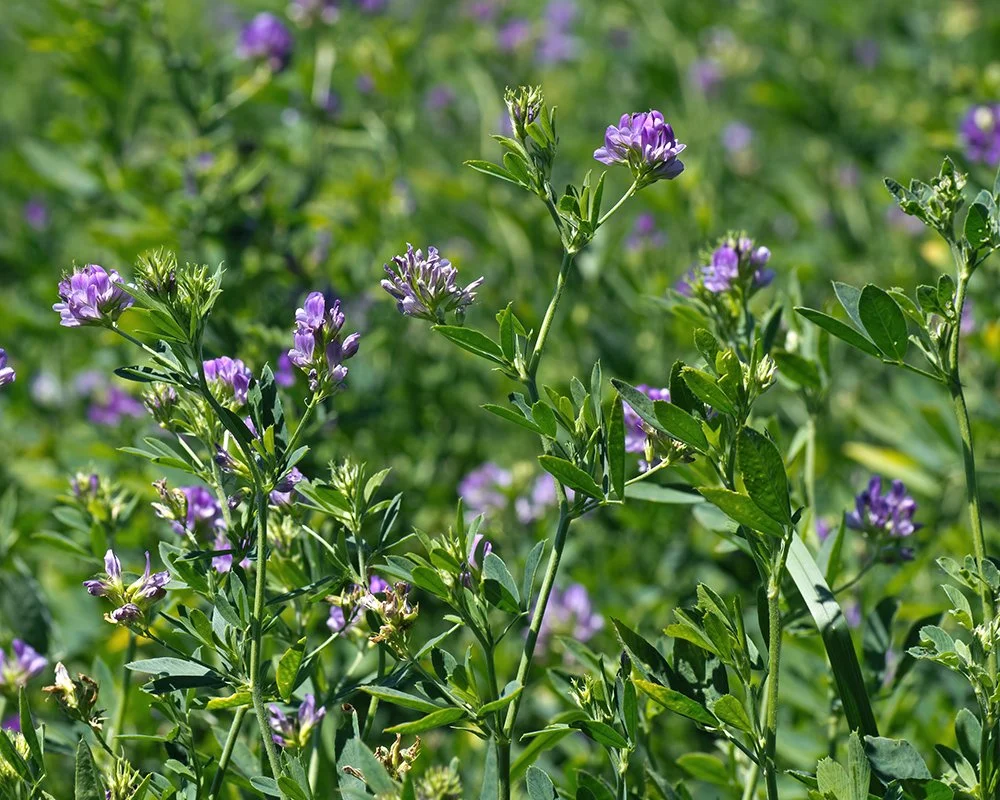Horsetail
It all begins with an idea.
Extracting horsetail (Equisetum arvense) into oil can provide several beneficial properties, making it a valuable ingredient in salves, balms, and other skincare products. Here are some key benefits:
Rich in Silica: Horsetail is known for its high silica content, which is crucial for maintaining healthy skin, hair, and nails. Silica helps strengthen connective tissues and promotes skin elasticity.
Anti-inflammatory: Horsetail has anti-inflammatory properties that can help soothe irritated skin and reduce redness and swelling.
Antioxidant: The plant contains antioxidants that help combat oxidative stress and protect skin cells from damage caused by free radicals.
Wound Healing: Horsetail has been traditionally used to support wound healing and tissue repair. Its astringent properties can help in reducing bleeding and promoting faster recovery of minor cuts and abrasions.
Firming and Toning: The astringent properties of horsetail can help tighten and tone the skin, which may improve the appearance of sagging or loose skin.
Mineral-Rich: Besides silica, horsetail contains other beneficial minerals like potassium and calcium that contribute to overall skin health.
When infused into oil, horsetail's beneficial compounds are transferred into the oil, making it a versatile ingredient for various skin and hair care products. The resulting horsetail oil can be used in formulations to leverage these properties for enhancing skin health, promoting wound healing, and supporting the strength and elasticity of skin and hair.
Horsetail is an abundant herb here in Boulder Colorado, found mainly (pretty much exclusively) by riversides! This plant is a water lover, so if you’re hiking around Boulder and you’re by a river there is a good chance you’ll meet this amazing plant ally. Not only is horsetail great for oil infusions, one can also drink a tea of horsetail, traditionally used for creating healthy hair, skin and nails by filling you up with nutrients such as silica.
Horsetail (Equisetum spp.) is an ancient plant with a lineage that dates back over 300 million years. Its evolutionary history traces back to the Carboniferous period, making it one of the oldest surviving plant species. During this era, horsetail was a dominant species, growing up to 30 feet tall in swampy, tropical forests. Fossils of horsetail from this period reveal a towering, tree-like plant that has since evolved into the more modest forms we see today.
Alfalfa
It all begins with an idea.
Extracting alfalfa (Medicago sativa) into oil can offer a range of benefits due to the plant’s rich nutritional and therapeutic profile. Here are some key advantages of using alfalfa oil in skincare and wellness products:
Rich in Vitamins: Alfalfa is high in vitamins A, C, D, E, and K. These vitamins contribute to skin health by providing antioxidant protection, promoting skin repair, and improving overall radiance.
Mineral Content: Alfalfa contains essential minerals such as calcium, magnesium, and potassium. These minerals support healthy skin function and can help maintain skin hydration and elasticity.
Antioxidant Properties: The antioxidants in alfalfa, including vitamin C and flavonoids, help combat oxidative stress and protect the skin from damage caused by free radicals, which can lead to premature aging.
Anti-inflammatory: Alfalfa has anti-inflammatory properties that can help soothe and calm irritated or inflamed skin, making it useful for conditions like eczema or psoriasis.
Detoxifying: Alfalfa is thought to have detoxifying effects, which can help cleanse the skin of toxins and impurities, leading to a clearer complexion.
Nourishing: The nutrients in alfalfa oil can help nourish and rejuvenate the skin, making it a good choice for products aimed at moisturizing and revitalizing tired or dry skin.
Supports Healing: Alfalfa’s high vitamin content, particularly vitamin K, can aid in the healing process of minor skin injuries and reduce the appearance of scars.
Incorporating alfalfa oil into skincare products can leverage these benefits to enhance skin health, improve texture, and provide a soothing and nourishing effect.
Alfalfa: Cultural Significance, Health Benefits, and More
Cultural Significance:
Alfalfa (Medicago sativa), often referred to as the "father of all foods," has been cultivated since ancient times. Its use dates back over 2,000 years, with origins in the Middle East. Alfalfa's name comes from the Arabic word "al-fac-facah," meaning "father of all foods," reflecting its esteemed status in ancient agricultural societies.
Historically, alfalfa was valued for its ability to enrich soil due to its deep root system, which helps fix nitrogen in the soil. This trait made it a staple crop in many agricultural societies, particularly in regions like Persia (modern-day Iran), where it was grown extensively for livestock feed and soil improvement.
In traditional medicine, alfalfa was used in various cultures for its nutritional and medicinal properties. Ancient Greek and Roman herbalists recognized its benefits and used it to support overall health.
Health Benefits:
Nutrient-Rich Superfood:
Vitamins and Minerals: Alfalfa is packed with essential vitamins (A, C, D, E, and K) and minerals (calcium, magnesium, potassium, and iron). This makes it a valuable addition to the diet for overall nutritional support.
Protein and Fiber: It contains significant amounts of protein and dietary fiber, which are beneficial for muscle health, digestion, and overall metabolic function.
Digestive Health:
Fiber Content: The high fiber content in alfalfa helps promote healthy digestion by supporting regular bowel movements and preventing constipation.
Digestive Enzymes: Alfalfa also contains enzymes that aid in the digestion of proteins and fats.
Anti-inflammatory and Antioxidant Properties:
Phytonutrients: Alfalfa is rich in phytonutrients such as saponins and flavonoids, which have anti-inflammatory and antioxidant effects. These compounds help combat oxidative stress and inflammation in the body.
Cholesterol Management:
Heart Health: The soluble fiber in alfalfa can help lower LDL (bad) cholesterol levels, contributing to improved heart health and reduced risk of cardiovascular disease.
Detoxification:
Diuretic Effect: Alfalfa has mild diuretic properties that can help with the elimination of toxins from the body, supporting kidney function and urinary health.
Hormonal Balance:
Phytoestrogens: Alfalfa contains phytoestrogens, plant compounds that may help balance hormone levels and alleviate symptoms of menopause.

